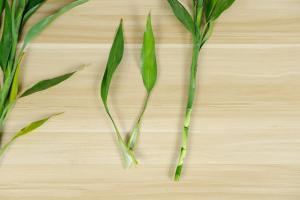Is Tap Water Ok to Water Vegetable Plants?
As gardeners, one of our primary concerns is ensuring that our plants receive the proper care and nourishment that they need to thrive. One question that often arises is whether tap water is safe to use for watering vegetable plants. While tap water is generally safe for human consumption, there are some things to keep in mind when using it to water your plants.
Chlorine and Fluoride Content
One of the biggest concerns about using tap water to water vegetable plants is the chlorine and fluoride content in the water. Most municipal water systems add chlorine and fluoride to the water supply to help keep it clean and safe for human consumption. While these chemicals are generally considered safe for people to consume, they can have a negative impact on plant health.
Chlorine in tap water can kill off beneficial bacteria in the soil, leading to a decrease in soil fertility. It can also cause the leaves of your plants to turn yellow or brown and can even inhibit root growth.
Fluoride, on the other hand, can accumulate in the soil over time, eventually reaching toxic levels for plants. It can also cause an over-accumulation of minerals in the soil, which can lead to nutrient imbalances and reduce plant growth and yield.
Alternatives to Tap Water
While tap water can be used to water vegetable plants, there are some alternatives that you might want to consider for optimal plant health. One option is to use rainwater. Rainwater is free of chemicals and is naturally soft, making it ideal for watering plants. You can collect rainwater in a barrel or other container and use it to water your plants as needed.
If collecting rainwater isn't feasible, you can also consider using filtered water. A water filtration system can remove chlorine and fluoride from tap water, making it safer for your vegetable plants.
Final Words
Overall, tap water can be used to water vegetable plants, but there are some potential risks involved due to its chlorine and fluoride content. If you choose to use tap water, it's important to be mindful of these risks and take steps to mitigate them. Alternatively, you can opt for rainwater or filtered water to ensure optimal plant health.
Whatever option you choose, remember to water your plants consistently and thoroughly to encourage healthy growth and yield. With a little care and attention, your vegetable plants will thrive and provide you with plenty of delicious and nutritious produce.

 how many times do yo...
how many times do yo... how many planted tre...
how many planted tre... how many pine trees ...
how many pine trees ... how many pecan trees...
how many pecan trees... how many plants comp...
how many plants comp... how many plants can ...
how many plants can ... how many plants and ...
how many plants and ... how many pepper plan...
how many pepper plan...






























